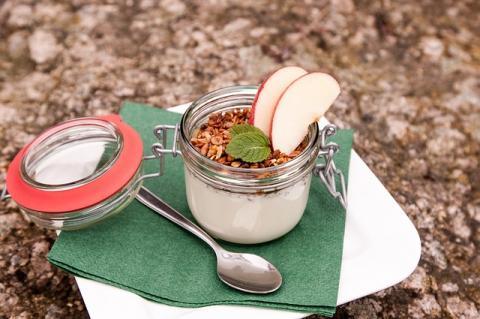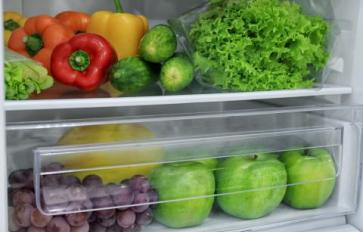
We eat for nourishment. We eat for fuel. We occasionally eat for fun. All these things are good, healthy habits. But how often do we think about these reasons? Sometimes, sure. Maybe after a particularly long run or a sweaty yoga practice I might make a smoothie with some extra protein because I know it will help me recover more quickly, but I don’t often think about how sharing that brownie with a friend over a cup of afternoon tea helps us connect. To be sure, I really don’t think about how my eating habits change in the wake of stress, or during times of transition. I notice that I feel guilty after a night of eating one (or two) too many cookies, but do I take time to reflect on my actions in the moment? No. Or if I do, I don’t care. Why is that?
I think I can safely say we have all experienced this, or some version of this. The moment that we choose pizza over salad for the third time in a week. When we reach for the jar of peanut butter even though we’re already full. When we eat food we know will make us feel sick, because for some reason it doesn’t matter (my personal pitfall). In these moments, the immediate satisfaction provides more comfort than the satisfaction of our health, and we give way to impulsive actions that leave us feeling unbalanced.
I know this might all sound very negative, but it’s not. If we can begin to use our eating habits as a conversation starter between our bodies and ourselves, then these actions can become vital in our pathway to wellness. Imagine you’ve just pulled an all-nighter: maybe you got two hours of sleep because you were working, out with friends, taking care of the family. Whatever it is, it’s left you exhausted. Chances are, the next day you might be a little more hungry than normal, especially for foods that provide quick energy like sugar and carbs. That’s okay. Your body is telling you it needs a little extra fuel for the day. But now expand that same scenario to a week, a month. At that point, your body is trying to tell you that these actions are not sustainable, that it’s running on low, and that it’s going to crash if something doesn’t change. This is good. Your body is telling you what it needs, and if you listen, you can give your body what it needs in a way that is satisfying in the moment and in line with your overall health goals in the long run..
I’ve noticed this in myself not only during times of physical stress, but also mental stress. In particular, when I’m feeling unfulfilled emotionally, I find myself trying to replace that emotional nourishment with food. Or if I feel like everything is going crazy around me, I end up snacking, rather than committing to a single meal. If we can begin to recognize these changes as they arise, if we can begin to understand why we are eating, we can use food as a way to reflect on our situation in life early on, and maintain our well-being through the process.
The question remains, then, how to reach this mindfulness? This will change from person to person, so it’s important to experiment with different methods to find what works for you, but I have a few suggestions to get you started. I believe that identifying habits is a great way to stat.
Tips for using food to reflect
Record: Take a week to record your eating habits and food choices. At the same time, record your sleep quality, stress levels, and emotional state. At the end of the week, compare the two and see if you can identify any patterns. You might discover some patterns you didn’t realize you had, and identifying these can help you to be aware of them and make different decisions in the future.
Respire: Taking a few moments to breathe before you eat anything is also a great quick fix, and can help you break out of these patterns. It’s hard at first, but if you take two minutes to breathe and reflect before you eat, you might find that you’re actually craving something instead of food (like emotional comfort or a moment to relax), or make healthier decisions.
Redirect: If you’re stuck in a cycle of mindless or emotional eating, I find that it’s helpful to make alternative options. Have a list of these available on the kitchen fridge or inside the snack cabinet so you don’t need to think of them on the spot. For me, I find that taking a bath or using rose essential oil can feed the nourishment I feel I need. Taking a walk, meditating, or spending some intimate time with your partner are other great options. Precooking meals is another great way to make sure something nourishing is always on hand.
Eating habits are an amazing way that our body tries to communicate with us, and can provide us with an early opportunity to reflect on our lives before we find ourselves out of balance. Whatever your situation might be, even if everything is calm at the moment, paying attention to your eating habits and tendencies is a great tool for self-reflection, and can often uncover needs we were not even aware we had.








